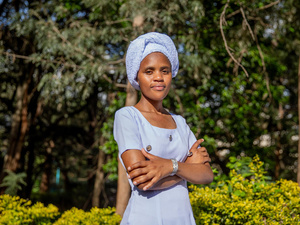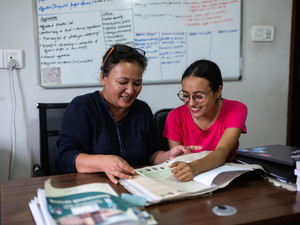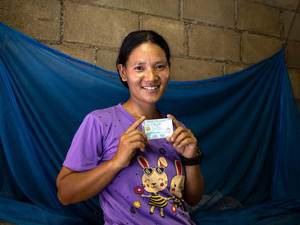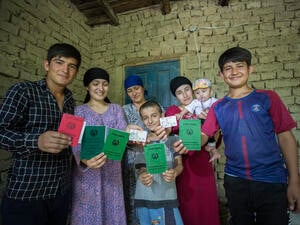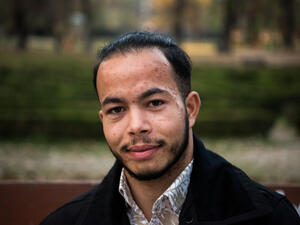Statelessness: Major progress in Sri Lanka, Nepal and Bangladesh
Statelessness: Major progress in Sri Lanka, Nepal and Bangladesh
We're pleased to announce that there has been a succession of positive developments in recent months concerning several groups of stateless people across the world - following many years of stagnation. Stateless people are those who for a variety of reasons do not have nationality or citizenship in the state where they are living - or anywhere else - with sometimes devastating consequences.
There have now been major breakthroughs in three Asian countries - namely Sri Lanka, Nepal and most recently Bangladesh - which, all told, should benefit some three million formerly stateless people. There are also significant legal developments currently under way in Brazil.
UNHCR, which has a mandate for stateless people as well as for refugees, warmly welcomes the recent decision of the government of Bangladesh to confirm citizenship for at least 160,000 of the country's 300,000 Urdu-speaking population, also known as Biharis, who became stateless as a by-product of the separation of Pakistan from India in 1947 and the subsequent civil war that led to the creation of Bangladesh in 1971. An inter-ministerial meeting made its ruling on citizenship earlier this month, and its decision has been referred to the law ministry for final approval.
Earlier this year, Nepal conducted an extraordinary operation which resulted in some 2.6 million people receiving certificates of citizenship. Hundreds of mobile teams fanned out across Nepal's 75 districts, visiting even the remotest of mountain villages, to ensure that certificates were issued to as many of the country's inhabitants as possible.
This followed an earlier campaign in Sri Lanka, where more than 190,000 people obtained Sri Lankan citizenship over a 10-day period, after a change in the law that benefited the stateless descendants of tea pickers who had been brought to the island-state from British India nearly two centuries earlier.
And there is also movement on this issue in South America and Europe. Last Thursday, Brazil's Congress passed an important constitutional amendment granting nationality to children born to a Brazilian parent living abroad. Previously such children risked ending up stateless, and it is estimated that up to 200,000 children could benefit from this development. And in a further step, later today the Brazilian Congress is scheduled to debate acceding to the 1961 UN Convention on the Reduction of Stateless.
Globally, however, relatively small numbers of states have ratified the two statelessness conventions - just 33 in the case of the 1961 Convention (including Rwanda which signed up to both at the end of 2006) and 62 in the case of the 1954 Convention relating to the Status of Stateless Persons. This compares to the 147 states that have now signed up to the 1951 Refugee Convention and/or its 1967 Protocol.
Despite the recent advances, millions of other people remain without an official identity, living in the Kafkaesque world of the stateless. In many cases they are unable to educate their children, benefit from government healthcare, get a legal job, travel abroad - or do any of a wide range of things which most of us take for granted. UNHCR believes that, in all, there may be as many as 15 million stateless people worldwide in at least 49 countries - a larger population than that of many established individual states.

